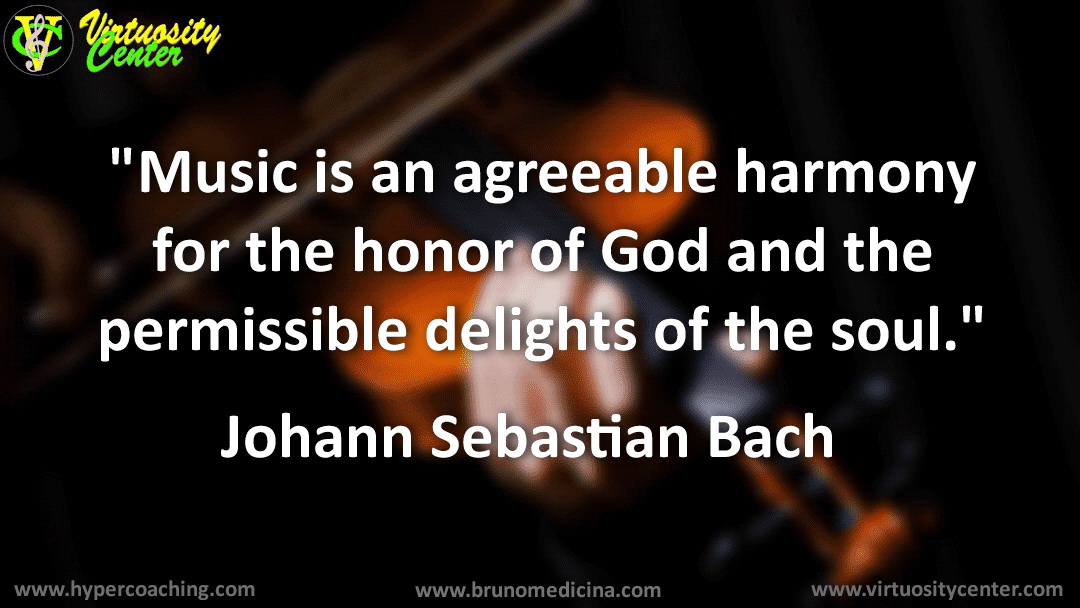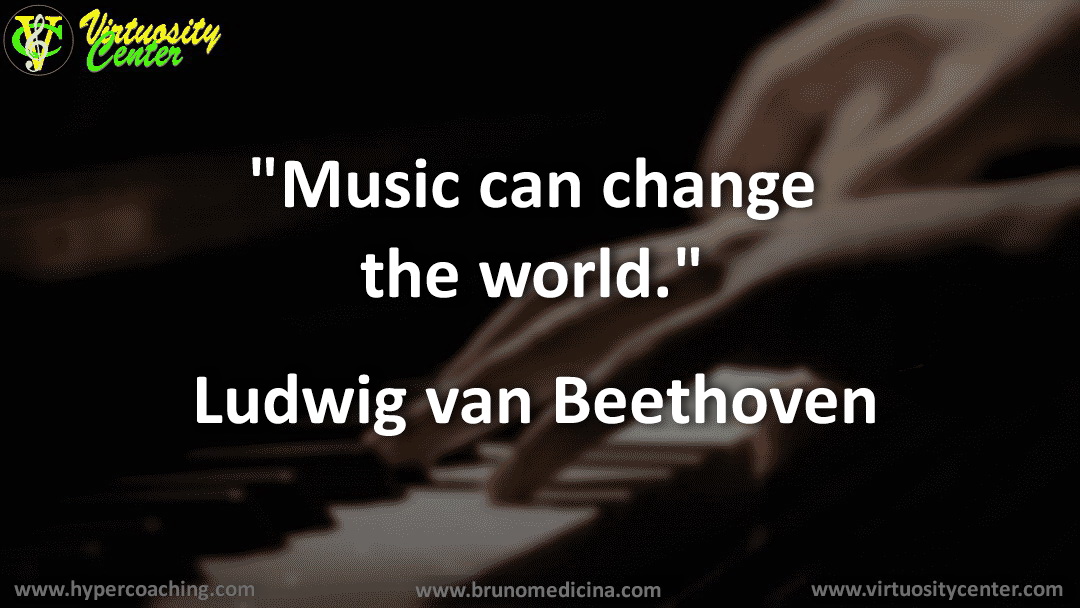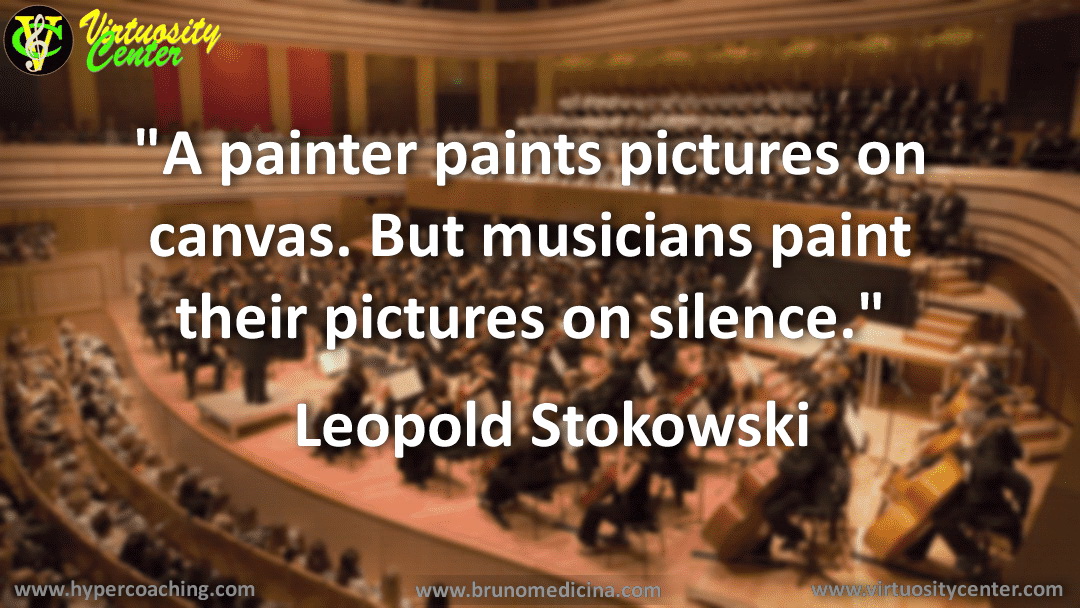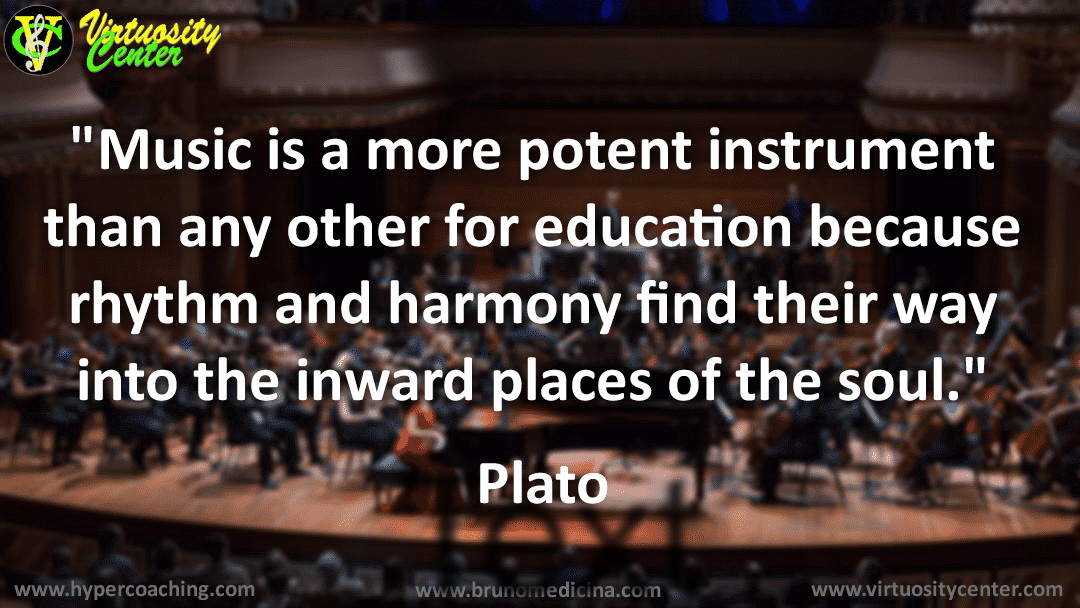„Muzica este o armonie plăcută pentru onoarea lui Dumnezeu și deliciile permise ale sufletului.” – Johann Sebastian Bach

„Muzica poate schimba lumea.” – Ludwig van Beethoven

„Un pictor pictează tablouri pe pânză. Dar muzicienii își pictează tablourile pe tăcere.” – Leopold Stokowski

„Muzica este un instrument mai puternic decât oricare altul pentru educație, deoarece ritmul și armonia își croiesc drum spre lăcașurile lăuntrice ale sufletului.” – Platon

Latest articles
 Magia conexiunii: cum să creezi o legătură emoțională cu publicul tăumartie 1, 2025 - 12:26 pm
Magia conexiunii: cum să creezi o legătură emoțională cu publicul tăumartie 1, 2025 - 12:26 pm De ce performanța live este încă importantă în era digitală: lecții pentru muzicienii clasicifebruarie 1, 2025 - 12:13 pm
De ce performanța live este încă importantă în era digitală: lecții pentru muzicienii clasicifebruarie 1, 2025 - 12:13 pm Ce spune Google despre tine: cum să-ți optimizezi reputația online ca muzicianianuarie 1, 2025 - 11:56 am
Ce spune Google despre tine: cum să-ți optimizezi reputația online ca muzicianianuarie 1, 2025 - 11:56 am Concert de Crăciun – Sâmbătă,14 Decembrie 2024, Ora 19.00decembrie 9, 2024 - 10:38 pm
Concert de Crăciun – Sâmbătă,14 Decembrie 2024, Ora 19.00decembrie 9, 2024 - 10:38 pm O pregustare a raiuluidecembrie 9, 2024 - 4:44 pm
O pregustare a raiuluidecembrie 9, 2024 - 4:44 pm
Contact
- Virtuosity Center International
- Performance Coaching and Promotion for Musicians and High Achievers
- virtuositycenter@gmail.com
- Download vCard
